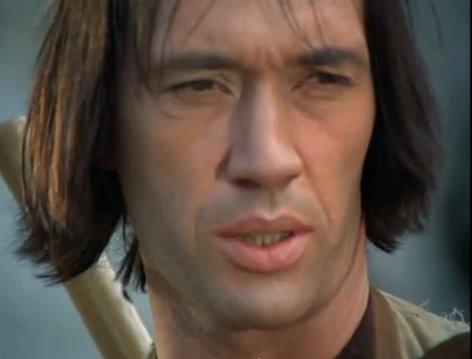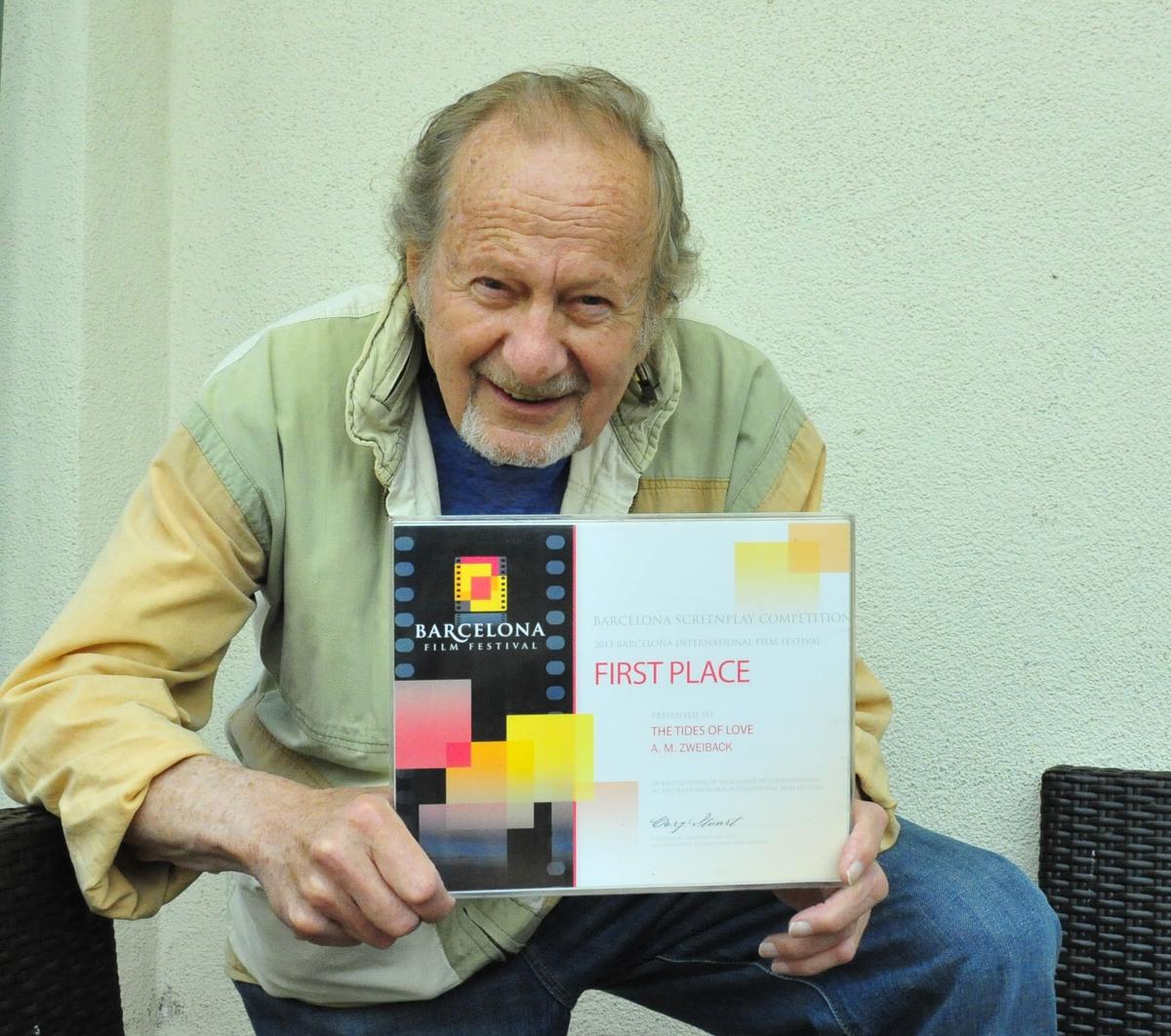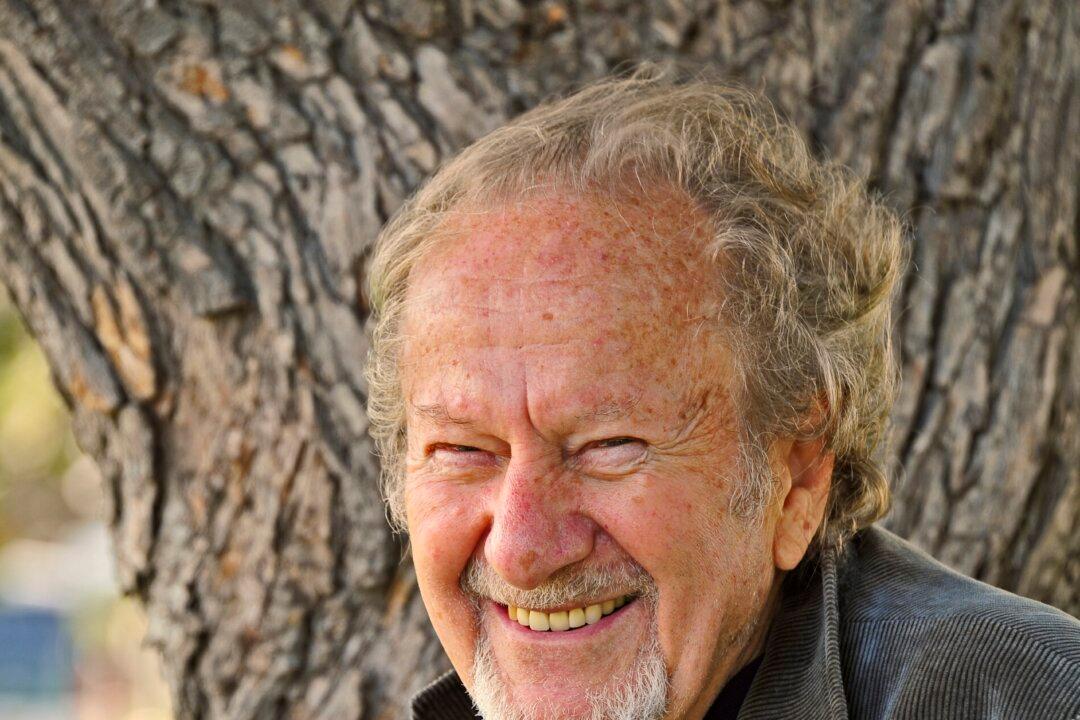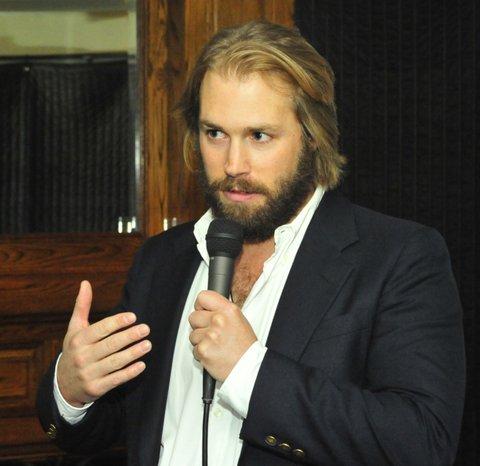At first glance, Martin Zweiback’s warmth, candor, and humility were immediately felt, and a great starting point as we embarked on resurrecting his stories written back in the 1970s for the hit TV series Kung Fu, starring David Carradine. Mr. Zweiback is one of the most revered writers of the iconic Kung Fu TV series.
Reporter: How would you describe the Kung Fu TV show?
Zweiback: A Spiritual Western—the only one of its kind ever on TV, to this day. It also presented “Eastern philosophy” as written by American writers, and actually preached non-violence by presenting the violence of martial arts. All contradictory but it worked. Pretty incredible, especially considering that this was 1973 and we were still embroiled in Vietnam. Keep in mind that most of the Asians were presented in the show as the “good guys”: downtrodden, exploited, or very wise. The “bad guys” were usually the American gunslingers or red necks. Actually I only realize this looking back 40 years later, but that’s pretty extraordinary if you think about it.
Reporter: You use the word “embroiled” in the Vietnam War, could you elaborate?
Zweiback: Embroiled; trying to figure a way out. Very much as we are now in Afghanistan, and just were in Iraq. We got into Vietnam in ‘55 and we didn’t get out until ‘75. Good men and women and children were dying for almost 20 years before we got ourselves out of that mess. The interesting thing is that the Kung Fu show started in ‘72. That was three years before we finally helicoptered ourselves and a few lucky friends out of a country we probably never should have been in to begin with. So, here was a TV show presenting Asian and half-Asian heroes to the American public while our men were still fighting the so-called “gooks” overseas. And the show was a hit. The American public loved it. They loved it because it was good storytelling, and they responded to its wisdom and compassion—as well as to its basic message of non-violence. Can you imagine a show on TV today where most of the good guys are the Muslims?
Reporter: What was the source of inspiration for referencing “Eastern philosophy?”
Zweiback: In my case I made it up as I went along, but the tone of it came from my reading of the Chinese Philosopher Lao Tzu, and what little I knew of Buddhism. What I loved about writing for the show was that it encouraged me to put my own feelings about life into words—words that I didn’t always fully understand as I was writing them.
Reporter: What was your greatest challenge writing for the Kung Fu TV series and how did you overcome it?
Zweiback: Getting the assignment and going after it. I had “crossed over” into features and had been nominated for Best Screenplay for Me, Natalie by the Writer’s Guild. I had not done TV for years, but I saw the pilot show and loved it, so I went after it.
Reporter: How has this project impacted your life, as a writer and in your personal life, both past and present?
Zweiback: I consider it the highlight of my creative life in TV—thus far.
Reporter: How did this opportunity come to you?
Zweiback: It didn’t come to me, I went after it—because I loved the pilot and the Carradine character, and thought I could make a contribution.

Actor David Carradine played the character Kwai Chang Caine in the series Kung Fu. (screenshot/Youtube)
Reporter: What was your biggest surprise?
Zweiback: One, getting the assignment. Two, some of the thoughts and lines I was able to come up with by just going with the flow of the story.
Reporter: How long did it take you to come up with an idea for a story and then write it?
Zweiback: It varied. About 2 to 3 weeks. “Ancient Warrior” I had to write in four days because there was an upcoming writer’s strike and the script had to be in by midnight of the fourth day, and it was delivered with only minutes to spare. It turned out to be the highest-rated Kung Fu episode ever! The show went from about 34th place to first place in the ratings. I was particularly pleased because I had recommended Chief Dan George for the title character, and he was magnificent in the part!
Reporter: Was this person a real Indian chief? How did you come to know about him?
Zweiback: “Ancient Warrior” came from my imagination, though the image of Chief Dan George, from the movie Little Big Man, was very much in my mind when I wrote the story. I was very pleased when I found out that they had cast him in the part—and particularly pleased to find out that he agreed to do the show, even though he was actually quite ill at the time, because he loved the script.
Reporter: Did you have any idea how successful the series would become?
Zweiback: Never questioned it. The surprise was, in all modesty, how my particular episodes seemed to resonate with audiences, which producer Jerry Thorp acknowledged in a letter thanking me for “your enormous contribution to the success of our first season.”
Reporter: Would you consider writing a new series if asked?
Zweiback: Yes.
Reporter: How do you feel about your Kung Fu audience now requesting Netflix to offer the series via instant stream, so as to be able to watch several in a row online?
Zweiback: Can’t complain about it since it’s a tribute to the continuing popularity of the series—but I’m not sure you don’t get more out of each episode by watching them separately, rather than turning the show into a marathon.
Reporter: Will there be TV reruns of Kung Fu?
Zweiback: No idea, that’s up to Warner Bros. I do know there has been talk for years about doing a feature-length remake.
Reporter: Is there anything you’d like to express that was unasked?
Zweiback: I look back on those words I wrote over 40 years ago in service to the show and wonder what inspired them?
I would have to give major credit to the iconic image that David Carradine delivered; as well as, of course, the original creators of the pilot show, which filled me with enthusiasm and the determination to work on it. Yet for me, as a writer, I would be remiss not to mention my personal inspiration from another writer—the Chinese Philosopher Lao Tzu, who was born 600 years before Christ. It was his words that helped me to find my own words in the 20th century. I confess now that I didn’t always fully understand the meaning of my own words, yet I went with the flow, and eventually the words all came to have meaning for me in a very deep and personal way.
Reporter: Could you elaborate on how they touched you personally?
Zweiback: As an example, when I wrote “It is only after death that the depth of our bond to our loved one is truly felt” and that they “become more a part of us in death than when in life” I had not yet experienced the truth of that statement. Decades later, when I did go through that experience, I found it to be absolutely true, at least for me.
The same was also true for many of the statements that I wrote intuitively, and later discovered to be absolutely true through my life experience—including the statement that “There is no truth, except that which cannot be spoken”. Life is a paradox.
Reporter: You said you recently watched the episodes you wrote for this interview. Are there any phrases you can recall that you are particularly proud of?
Zweiback: I also went back and checked the scripts to make sure they came from me. I’ll quote from a few that still had meaning for me, after 40 years:
“The Tide”:
“If a man dwells on the past, then he robs the present. But if a man ignores the past he may rob the future. The seeds of our destiny are nurtured by the roots of our past.”
“Those who value Freedom most must sometimes choose to lose it.”
“The Stone”:
“If you fight [injustice and cruelty] anywhere, do you not fight them everywhere?”
“There is no truth, except that which cannot be spoken.”
“The Ancient Warrior”:
PO: It is only after death that the depth of our bond to a loved one is truly felt, and in this way those truly loved become more a part of us in death than when in life.
YOUNG CAINE: And do we only feel this toward those whom we have known and loved a long time?
PO: Sometimes a stranger, known to us only for moments can spark our souls to kinship for eternity.
YOUNG CAINE: How can it be that strangers known for such a short time in our lives can take on such importance to our souls?
PO: Because our soul does not keep time. It merely records growth.
Zweiback: A postscript on this last one—I was told by someone that they had a relative who was seriously contemplating suicide; and who changed his mind because of the words he heard on that show. Can any writer receive a greater compliment?!
Reporter: Are you still working on any projects?
Zweiback: Always. Unfortunately my long-time agent at CAA recently passed away. Finding a replacement has been a challenge.
Reporter: Are there any more screenplays in the works?
Zweiback: Several. But the one I’m most focused on at the moment is a screenplay titled Destiny! It’s an epic adventure love story based on historical fact that takes place in turn-of-the-19th Century China and the U.S. You could describe it as Lawrence of Arabia in China, except there’s a great love story involved.
Reporter: Records indicate that you’ve had a long and fruitful career. Having written for many successful TV series besides Kung Fu you are well-known for several feature films among them; Me, Natalie, which introduced Al Pacino for the first time to the “big screen,” garnering you Best Screenplay nomination by the Writer’s Guild. The Ultimate Solution Of Grace Quigley, which won several awards and starred Katharine Hepburn, and Cactus in the Snow, which was honored at the Kennedy Center as the only anti-war film to come out of Hollywood during the Vietnam War—and which you also directed, to rave reviews.
How would you sum up your career thus far?

Martin Zweiback recently won first place for screenplays at the Barcelona Film Festival for his work The Tides of Love. (Robin Kemker/Circle Magazine)
Zweiback: I’ve never thought of my career as “long and fruitful”. It’s had its moments—and I definitely consider Kung Fu to be among the moments—but I’m still on the journey. I still have songs to sing, and I’m still banging on the castle doors trying to get the powers-that-be to listen.
Reporter: Any plans for retirement?
Zweiback: Maybe when I’m dead—or shortly thereafter.
The interview comes to a close, but not without gaining an indication as what to look forward to in the future. All good thoughts go to Mr. Zweiback in gaining access to the movie industry’s giants who are thirsty for a great story to tell.
By the way, I had the privilege of reading Destiny!, and master wordsmith Martin Zweiback has left no stone unturned in telling this most compelling story, demonstrating qualities most like his main character in the episode “Ancient Warrior,” Mr. Zweiback embodies strength, conviction, and a passion for his work.
We look forward to seeing Destiny! on the big screen in the near future.
This article was originally written for Circle Magazine.




